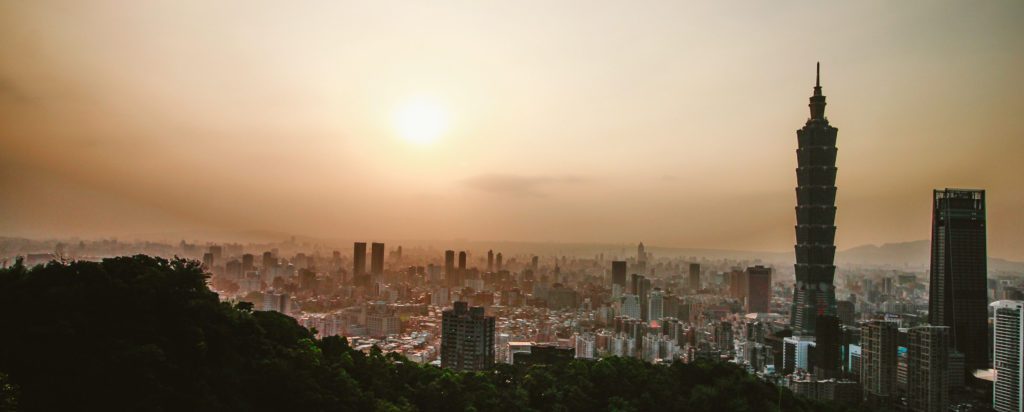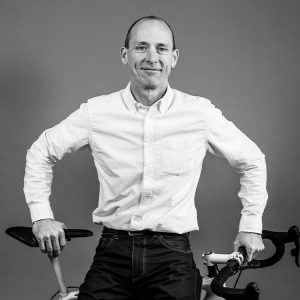We will be out of office 12/23 - 1/1. Happy Holidays!
Limited Edition: eeBrakes Magnum
Previous slide
Next slide


Brent Graves – President & CEO
An island in the Pacific that is about half the size of South Carolina and home to twenty-four million people is the center of the bicycle industry. While central Europe is the romantic heart of cycling, and Japan is home to industry king Shimano, the small island of Taiwan is ground zero for turning concepts into bicycles. Settled by humans around 6,000 years ago, its official name is the Republic of China, which is ironic as it sees itself an independent (and democratic) state, whereas China sees the island as a renegade province. Sometimes referred to as Formosa, the island is composed primarily of rugged mountains that run north to south along the east coast that top out with 12,966 foot Yushan. The tropical climate reminds one of southern Florida – never cool with boiling humidity in the late summer. From the bicycle industry perspective there are three cities on the map: the capital city of Taipei in the north, Taichung in the middle, and Tainan further south.
In the 70s and 80s, there was a lot of bicycle production in France, Italy, and Germany. Even the UK was spitting out notable quantities. However, during that period Japan’s weak yen and skilled workforce grabbed a large share of production. When Japan rapidly progressed to high-value product manufacturing (electronics and automobiles in the 1980s), Taiwan’s relatively skilled and low-cost labor attracted the bicycle industry. Since the early 90s Taiwan has become ground zero for nearly every bike and component brand. In recent years and until the Trump Tariffs began, the US sourced the majority of its complete bikes from China whereas Europe depended more heavily on Taiwan due to EU anti-dumping duties on China-made bikes.
SRAM/Rock Shox, DT Swiss, Bontrager, Specialized, 3T, WTB and nearly every premium component brand has most or all its products made in Taiwan by wholly-owned, partner, or independent factories. Notably absent from the island is the biggest brand, Shimano. It still makes its premium components in Japan and makes lower and mid-level parts in Singapore and Malaysia. However, I do believe Shimano’s sub-brand, PRO, has parts made in Taiwan. Additionally, some Taiwan makers have sought to have greater business stability by creating their own brands: FSA (Tien Hsin), Pro Logo (Velo), and to a lesser degree TRP (Tektro) are relative success stories. Even brands that have in-house manufacturing and/or assembly likely source material and sub-components from Taiwan, as does Cane Creek.
I first visited Taiwan in March of 1993 as part of a five-person sourcing trip. While I could write several blogs on that sixteen-day adventure that also included jaunts to Japan, Hong Kong, and China, let’s just say that my mentor Al Stonehouse left no stone unturned with my indoctrination of “how things are done” in Taiwan – and that included after hours “work” with vendors and zero western food the entire trip (I unfortunately won the bet that I’d lose weight when the others gained it). We visited factories where I got to see how things were really made via forging, extruding, casting, welding, machining, injection-molding, and of course lots and lots of assembly of parts, frames, and complete bicycles. Most importantly during that trip and others I was introduced to the movers and shakers (now luminaries) of the production side of the industry such as the unparalleled Stella of Velo, the ever-enthusiastic Victor of VP, the always smiling Daniel of Viscount, the late James at Lee Chi, John at Wellgo, Douglas at Tien Hsin (soon to be FSA), Lily at JD, and my soon to be extended family of Sammy Chuang, Weber Chen, and the incomparable Ray Kintzley of Ramiko; great people, all.
While China took much of Taiwan’s volume after the turn of the century, a lot of China factories were established, owned, and managed by Taiwanese. Foreseeing the impact from the loss of volume, the A-Team was established to foster cooperation and advancement of the Taiwan bicycle industry. Arch rivals (e.g. Merida and Giant) cooperated for the greater good of the Taiwan bicycle industry. As China’s labor costs increased and political and environmental challenges grew after the turn of the century, Taiwan regained some volume. These days some Taiwanese factories maintain a supply link to China, whereas others believe it is more efficient to only manufacture in Taiwan.
Ironically, very little recreational or sport cycling was seen in Taiwan during the 80s and 90s. But that began to change in the last twenty years. Government efforts to clean up the environment and industry efforts to gain a better understanding of its customers combined, and on summer evenings one will find the twisty foothill roads outside of Taichung teaming with riders – many riding slick-tired mountain bikes and wearing pro team kits. The island now has a marque event in the Taiwan KOM – arguably the toughest climbing race in the world. It starts on a beach and then goes straight up for about fifty miles and 11,000 feet via the highest passable road on the island. The race even caught the attention of UCI pros. Nibali won in his first attempt in 2017 over some super strong natives and retired pros Cadel Evans and Phil Gaimon. Yours truly experienced a gruesome day on the bike in 2015 but was able to finish despite horrible nutrition.
Without getting into politics or nationalistic dogma, I will say that my experiences and relationships born in Taiwan are some of the best of my life. One of my early bosses once told me “this is where the shit happens”, and I could not agree more. While not everything is made in Taiwan, the island is the intercept of factories, designers, engineers, and (most importantly!) product managers. Time on the island is full bicycle-immersion, and this year of Covid-19 pandemic no-travel has left me, and I’m sure many others, feeling half blind and disconnected without visits to the center of our industry.
Monday: 10:00 am – 5:00 pm
Tuesday – Thursday: 10:00 am – 5:00 pm
Friday: 10:00 am – 5:00 pm
Saturday – Sunday: Closed